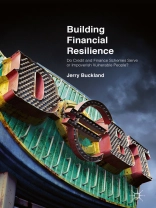This book examines how credit and finance schemes affect the financial lives of vulnerable people around the world. These schemes include payday lending, matched savings, and financial literacy in the Global North, and micro-credit and mobile banking in the Global South. Buckland sets these schemes within the context of financialization and seeks to identify strengths, weaknesses, and ways to enhance the well-being of vulnerable people. This book’s coverage of a wide range of financial products and geographic regions makes for a unique and innovative perspective on this topic. It presents a balanced critique of credit and finance schemes under the assumption that reform is the most practical means to improve human well-being.
Table des matières
1. Introduction.- 2. Financial Inclusion and Building Financial Resilience.- 3. New Areas of Commercial Banking Directed at Vulnerable People: Payday Lending and Mobile Banking.- 4. Financialization and Consumer Behaviour.- 5. Credit, Cash, Savings and Financial Literacy Delivered through Civil Society.- 6. The State: Regulating, Nudging, and Educating for Financial Inclusion.- 7. Conclusion.
A propos de l’auteur
Jerry Buckland is Professor of International Development Studies at Menno Simons College, Canadian Mennonite University, Canada. His research and teaching areas include financial inclusion and empowerment, research and evaluation methods, community-based development, and rural and Indigenous Peoples’ development.












